Cars, Catalysts, and Technical Inspection: The Minister of Natural Resources on Efforts to Combat Air Pollution. Interview
Read also:
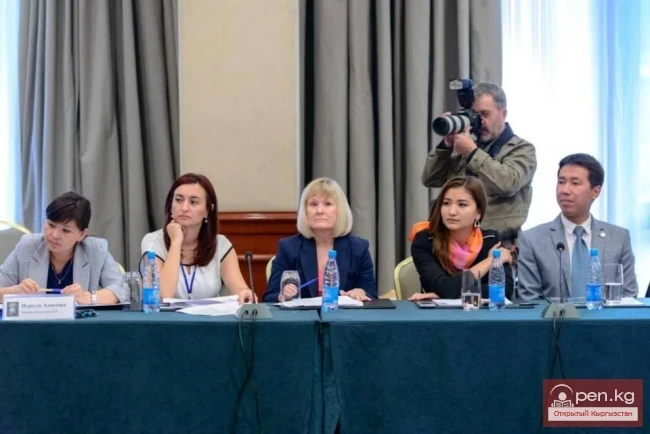
The International Business Council has developed a vision for the development of Kyrgyzstan's economy.
The International Business Council has developed a vision for the development of the Kyrgyz...
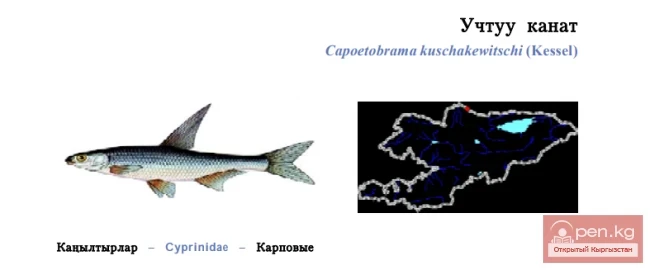
Chuya Sharp-wing / Uchtoo Kanat / Eastern Ostroluchka
Chuy Ostroluchka Status: 2 [CR: C]. Possibly already extinct in Kyrgyzstan, an endemic...
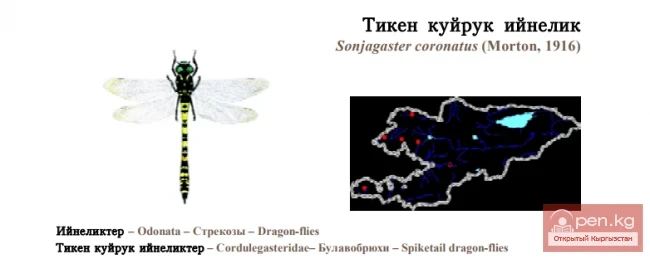
Crowned Bulbous-Body / Tiken Tail Needle / Coronate Spiketail
Coronate Spiketail Status: Category II (VUA4bc; B2b(iii,iv); D2). A locally occurring species with...
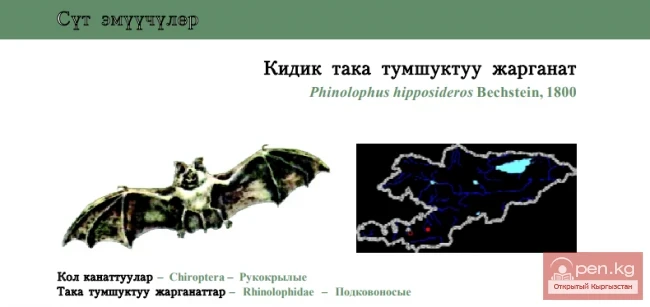
Lesser Horseshoe Bat / Kidik Taka Tumshuktyu Jarganat / Малый подковонос
Lesser Horseshoe Bat Status: Category VI, Near Threatened, NT: R. A species with a declining...
Manas Airport. Bishkek. Kyrgyzstan.
Airport Manas. Bishkek. Kyrgyzstan. Kyrgyzstan. Bishkek. Airport Manas...
The Beautiful Country Known as Kyrgyzstan
Kyrgyzstan is a small country bordering Uzbekistan, Kazakhstan, and Russia. The main attractions...
Dedicated to everyone who lived in Bishkek! Bishkek, Kyrgyzstan, Kyrgyz Republic, city of Bishkek
Bishkek, Orto-Tokoy Reservoir. September, 2013....

Exhibition "Wedding Expo 2014", May 23, 24, and 25, at the Museum of Fine Arts
The agency "Event DeLuxe" once again invites future brides and grooms to the exhibition...
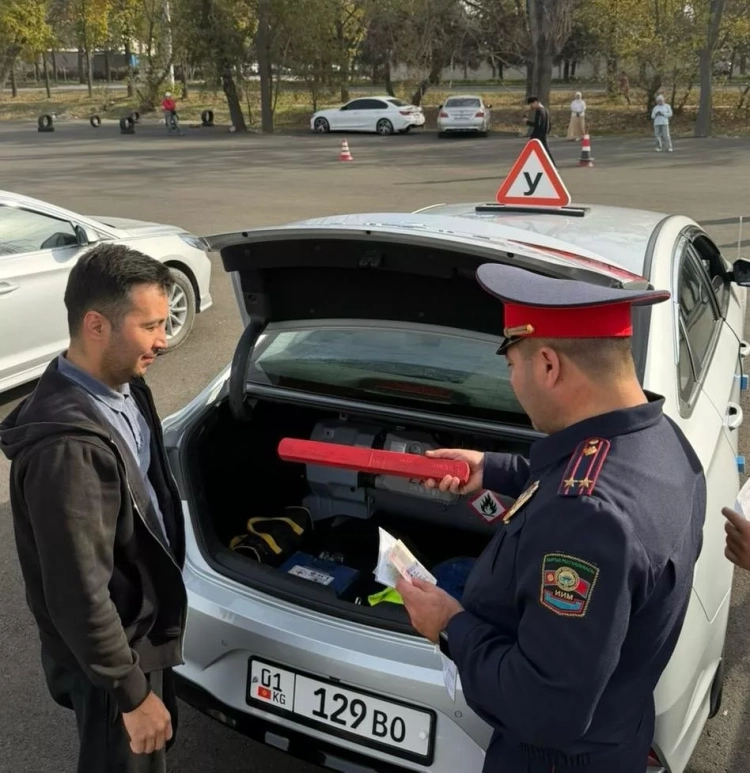
Traffic Police: As a result of the "Training Transport" raid, 1328 violations were identified
In order to enhance road safety and reduce the number of traffic accidents, as well as to regulate...
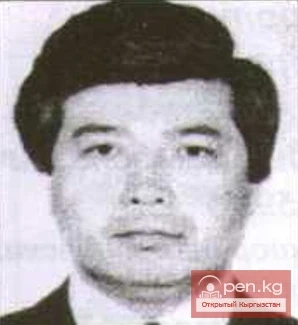
Chortonbaev Tyrgoot Jumadievich
Chortonbaev Tyrgoot Jumadievich (1953), Doctor of Agricultural Sciences (2000) Kyrgyz. Born in the...
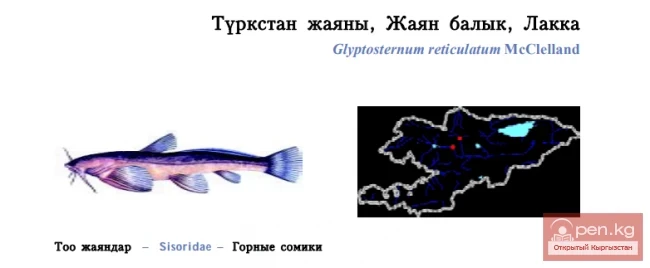
Turkestan Catfish / Turkestan Zhayany, Zhayany Fish, Lakka
Turkestan Catfish Status: 2 [VU: E]. The only representative of the genus in Kyrgyzstan....

Shopping Fest Days at Bishkek Park Shopping Center
Shopping Fest 2018 and Two Nights of Discounts! The days have finally arrived! The Shopping Fest...

Bishkek Battle Session Breakdance Championship
On October 19, a breakdance championship called Bishkek Battle Session will take place in Bishkek...
Kyrgyzstan. Bishkek-Osh Road
A compilation set to the song by Takhir Jumabaev...

Dancers from Kyrgyzstan won the tournament in the UAE
Dancers from Kyrgyzstan won at the international tournament held in Dubai (UAE). This was reported...
KVN 2013. "Asia Mix", Bishkek, Kyrgyzstan, Greeting
First 1/4 (fifth game)...
KVN 2013. "Asia Mix", Bishkek, Kyrgyzstan, Musical Show
First 1/4 (fifth game)...
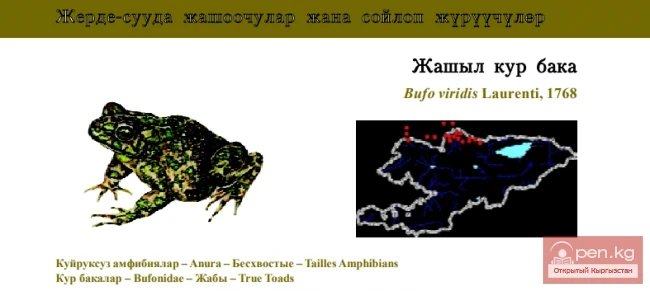
Central Asian Frog / Kyzyl Koltuk Frog / Middle Asia Wood, or Asiatic Brown, Frog
Central Asian Frog Status: Category VUB1ab(iv). A mosaic-distributed species with a disjunct and...
Dance Flash Mob in Support of Social Justice in Kyrgyzstan
Popular dance teams Tumar, Let's Dance, and dancer Jan Voinov participated in a flashmob...
Japanese song dedicated to Kyrgyzstan
A Japanese song in the traditional Japanese genre of "enka," titled "Wanderer of...
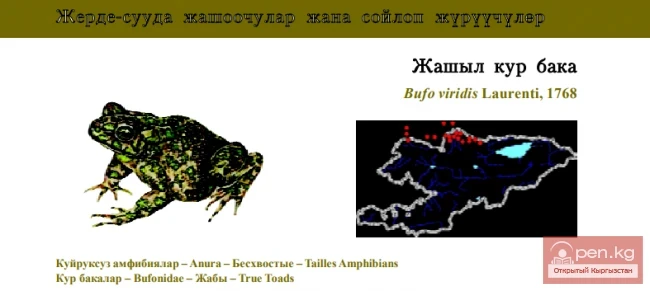
Green Toad
Green Toad Status: VU category B2ab(ii,iii,iv); D2. A rare species in Kyrgyzstan, with a sharp...
Kyrgyzstan - Bishkek
Bishkek (Kyrgyz: Бишкек) is the capital of Kyrgyzstan and the largest city in the country. It...
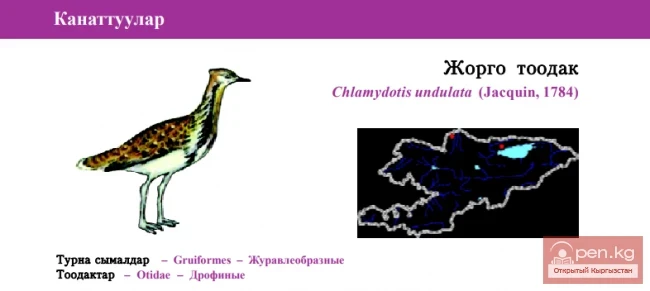
Houbara Bustard / Gorgeous Bustard / Houbara Bustard
Houbara Bustard Status: III category, Critically Endangered, CR: R, A1. The subspecies Chlamydotis...
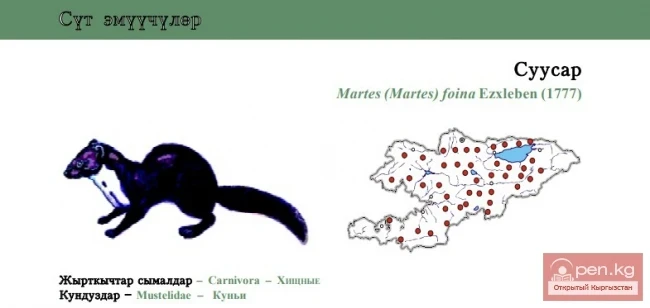
Stone marten or white-breasted marten / Suusar / Beech marten
Stone marten or beech marten Status: VII category, Lower Risk/least concerned, LR/lc. A rare...
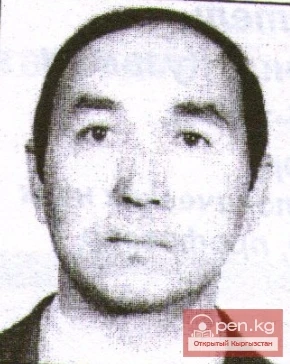
Omorov Turatbek Tursunbekovich
Omorov Turatbek Tursunbekovich (1951), Doctor of Technical Sciences (1997), Laureate of the State...
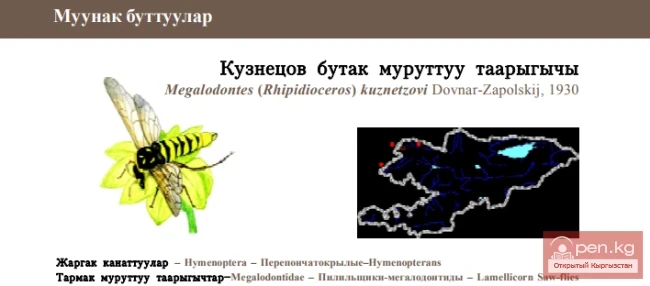
Kuznetsov's Megalodont / Kuznetsov's Lamellicorn Saw-fly
Kuznetzov’s Lamellicorn Saw-fly Status: II category (VU B1ab(iii)+2ab(ii,iii,iv); D2; E). A rare...
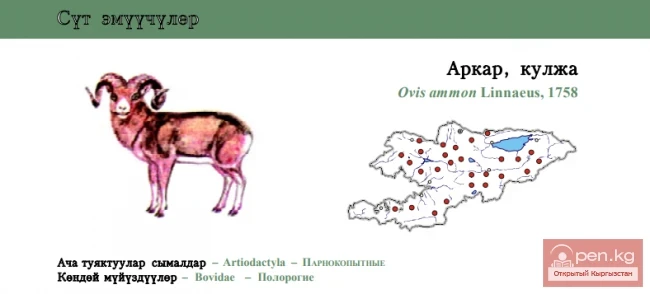
Mountain sheep / Argali, kulja / Argali
Mountain Ram Status: Three subspecies with different statuses inhabit the territory of the...
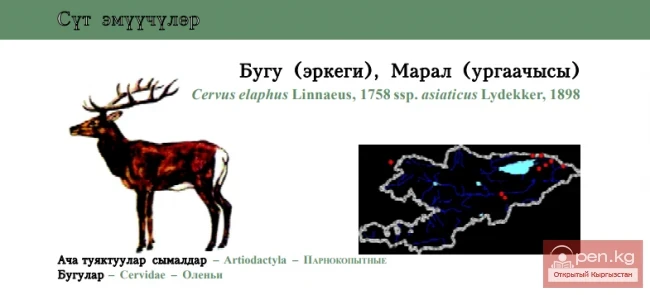
Noble Deer (Tien Shan subspecies), Maral / Bugu (male), Maral (female) / Asiatic Red Deer, Tien Shan Maral, Tien Shan stag
Noble deer (Tien Shan subspecies), Maral Status: Category IV, Endangered, EN C2a(i): R. A sharply...

World Economic Forum 2014-2015: Kyrgyzstan Improved Its Position by 3 Places in the GDP Ranking
Kyrgyzstan ranked 128th in terms of gross domestic product among 144 countries with $7.2 billion...
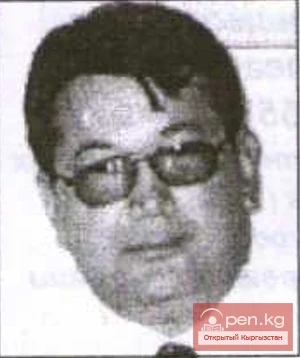
Kasybekov Erkinbek Shaktybekovich
Kasybekov Erkinbek Shaktybekovich (1963), Doctor of Biological Sciences (2002) Kyrgyz. Born in...
The Ministry of Internal Affairs detained an associate of the leader of the organized crime group "Dzhengo," who had illegally registered a land plot worth 43.7 million soms.
Employees of the Ministry of Internal Affairs detained an individual close to the leader of the...
A 3-year-old child was hit near Asia Mall in Bishkek. He died.
In Bishkek, an accident occurred the day before, resulting in the death of a small child, reported...

Vitaly Antonovich Stavinsky
Stavinsky Vitaly Antonovich (1936), Doctor of Geological and Mineralogical Sciences (1997),...
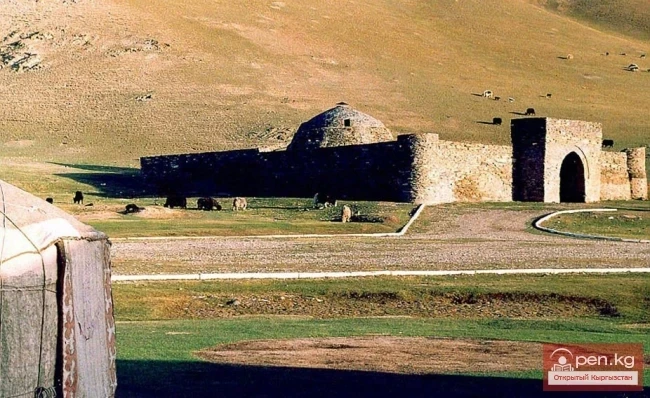
Attractions of Naryn Region
Historical-Architectural and Modern Attractions, as well as Natural-Ecological Complexes Cities...
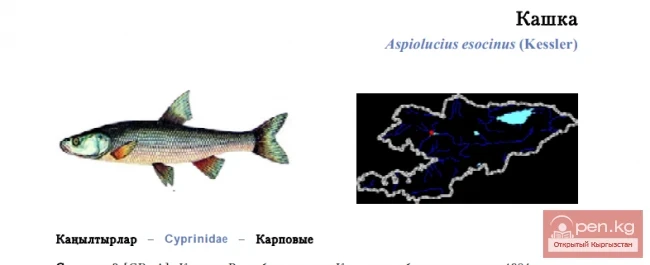
Pike Asp / Kashka / Pike Asp
Pike Asp Status: 2 [CR: A]. Listed in the Red Book of the Kyrgyz SSR in 1984. A rare...

Bakassova Zaryl Bakasovna (1932)
Bakasova Zaryl Bakasovna (1932), Doctor of Chemical Sciences (1977), Professor (1992),...
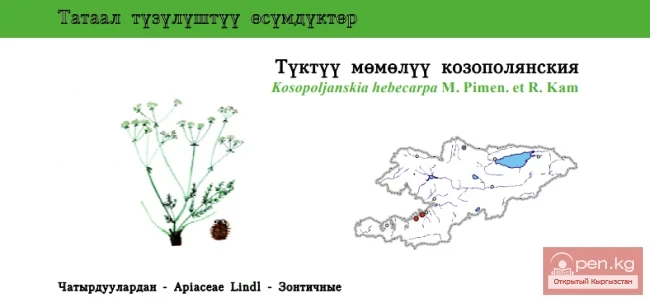
Wolly-fruited Kosopoljanskia
Wolly-fruited Kosopoljanskia Status: EN. Endemic. One of the two species that are sub-endemic to...
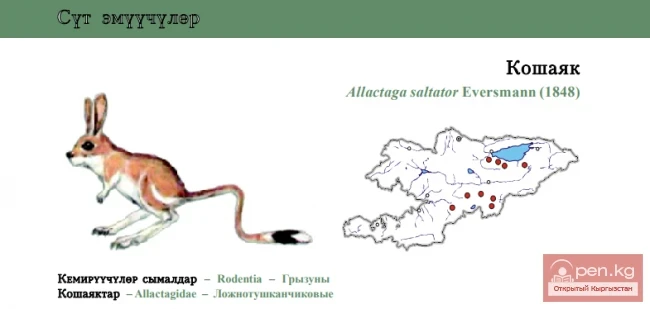
Jumping Jerboa / Koshayak / Jerboa
Jerboa Status: Near Threatened, NT: R...
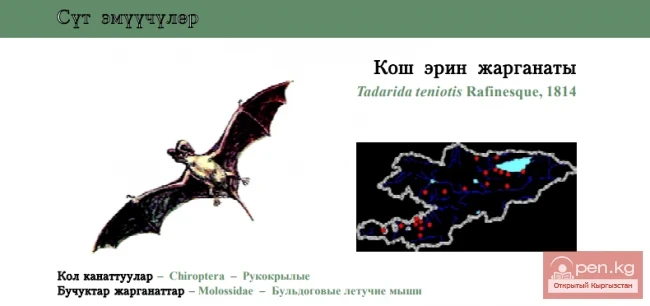
Broad-eared bat / Erin's bat / European Free-tailed bat
Broad-eared bat Status: Category VII, Lower Risk/least concerned, LR/lc....
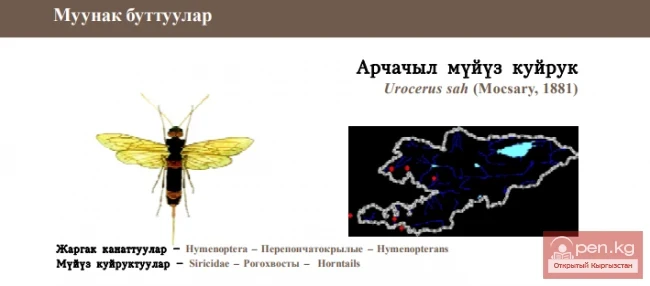
Arch's Hornet / Archachyl Muyuuz Kuyruk / Juniper Horntail
Juniper Horntail Status: Category III (LR-nt). A naturally rare species with a tendency to habitat...
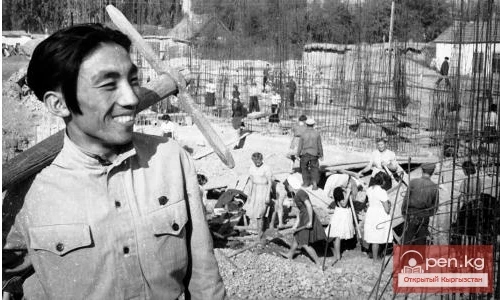
Organization in Frunze of the Kyrgyz State Drama Theater. Document No. 129 (June 1941)
RESOLUTION OF THE COUNCIL OF PEOPLE'S COMMISSARS OF THE KYRGYZ SSR "ON THE ORGANIZATION...

Resolution of the Kirov Regional Committee of the All-Union Communist Party (Bolsheviks). Document No. 106 (October 1936)
RESOLUTION OF THE KIRGHIZ REGIONAL COMMITTEE OF THE VKP(b) "ON THE ORGANIZATION AND...
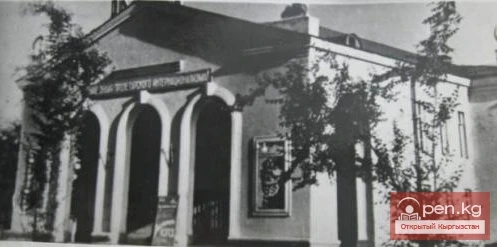
Organization of a Puppet Theater in the City of Frunze. Document No. 123 (September 1939)
RESOLUTION OF THE COUNCIL OF PEOPLE'S COMMISSARS OF THE KYRGYZ SSR "ON THE ORGANIZATION...
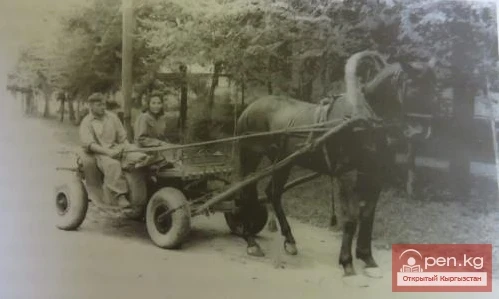
Information on Social Competitions Among Artels of Frunze. Document No. 125 (March 1939)
INFORMATION FROM THE INTERDISTRICT INDUSTRIAL UNION ON SOCIALIST COMPETITION AND STAKHANOV...

Establishment of the Honorary Certificate. Document No. 207 (May 1958)
RESOLUTION OF THE FRUNZE CITY COUNCIL OF WORKERS' DEPUTIES "ON THE ESTABLISHMENT OF THE...

October 7 Extreme Project "The Hunger Games II"
Extreme Project 'Hunger Games II' The Scorpion Paintball Club, with the support of the...

The First Chess Festival in Bishkek
On February 28, the Chess Festival "Intellectual Child - the Future of Kyrgyzstan" will...
Ordo Sakhna Music from Kyrgyzstan of the Folk Ethnographic Theater
Ordo Sakhna – The Folk Ethnographic Theater. Biography. The folk ethnographic theater Ordo Sakhna...